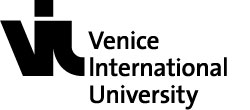F2220 Globalization, Communication and Network Society
Professors
Schedule
Course description
The course is focused on analyzing the relationship between multidimensional globalization, communication and social changes in the contemporary Digital Society. The analysis highlights the philosophical, social, cultural, and political implications of globalization. Specifically, the influence of emerging communication technologies in the various dimensions of globalization will be presented. The teaching approach is planned to be comparative, and multicultural.
Evaluation
Active participation in the course is expected. In order to attain a passing grade, students are expected to attend a minimum of 85% of classes.
Performing and submission on time the course assignments – 40%
Submission of final course work – 60%
Syllabus
1. Introduction. The main goals of the course. The structure of the course. Introduction to the History of Media.
2. The global society. The main concepts: technology, economy, information, human consciousness. Mankind being (Yuval Harari). Timeline: from Homo Sapiens to Homo Deus.
3. Digital Society (Luciano Floridi). Revolutions in human consciousness. From the Historical State to the Hyperhistorical Multi-Agent Systems. The Nature of the Political MAS. Transformations of the digital society.
4. Information Society (Alvin Toffler). Four waves timeline: agricultural, industrial, information and communication waves. Toffler’s paradigms. Thesis, antithesis, synthesis.
5. Post-Industrial Society (Daniel Bell). Transformations of Society: from property to knowledge, from money to information, from factory to university. Technological Society (Klaus Schwab). The fours industrial revolution. Cybernetics (Norbert Wiener)
6. Networked Society (Manuel Castells). Distributed Responsibility in the Network Society. Power in the Network Society. State and Power in the Global Age. Networks. Global Network Society. The Network state. Power of the Network.
7. The Global Network as a collective intelligence (Pierre Levy). Big Data. Deep learning. Networks of Mind and Power.
8. From globalization to continentalization (Jeremy Rifkin). From ownership to borrowing; from property to access. Cultural Changes in a Globalized World. Cultural space. The culture of the globalization. The Creative Audience. Attention in the Digital Society. Attention Economy: from power to seduction. Joint Attention. Grey Ecology.
9. Mass-communication. New Media. The concept of Media (Marshall McLuhan). “The Medium is the Message”. Oral Culture to Print Culture. Print Culture to “Electric Culture”. The Global Village.
10. Mass-communication theory (Denis McQuail). The pyramid of communication networks. Consequences of mass communication. Approaches to media theory. Policy regime governing past communication platforms.
11. New media issues (Douglas Rushkoff). Ten Commands for Digital Age.
12. New media (Lev Manovich). Five principles of new media: digitality, modularity, automation, variability, transcoding.
13. Conclusions. Media and the Future of Democracy and Equality.
Bibliography
Bell, D. (1973). The Coming of Post-Industrial Society, New York 1973.
Castells, M. (2013). Communication power. OUP Oxford.
Floridi, L. (2014). The fourth revolution: How the infosphere is reshaping human reality. OUP Oxford.
Harari, Y. N. (2016). Homo Deus: A brief history of tomorrow. Random House.
Manovich, L. (2013). Software takes command (Vol. 5). A&C Black.
McQuail, Denis (2010), McQuails's Mass Communication Theory (sixth edition)
McLuhan, M. (1964) Understanding Media: The Extensions of Man.
Rushkoff, D. (2010). Program or be programmed: Ten commands for a digital age. Or Books.
Toffler, A. (1980). The third wave (Vol. 484). New York: Bantam books.
Rifkin, J. (2011). The third industrial revolution. How lateral power is transforming energy, the economy, and the world. Basingstoke.




















